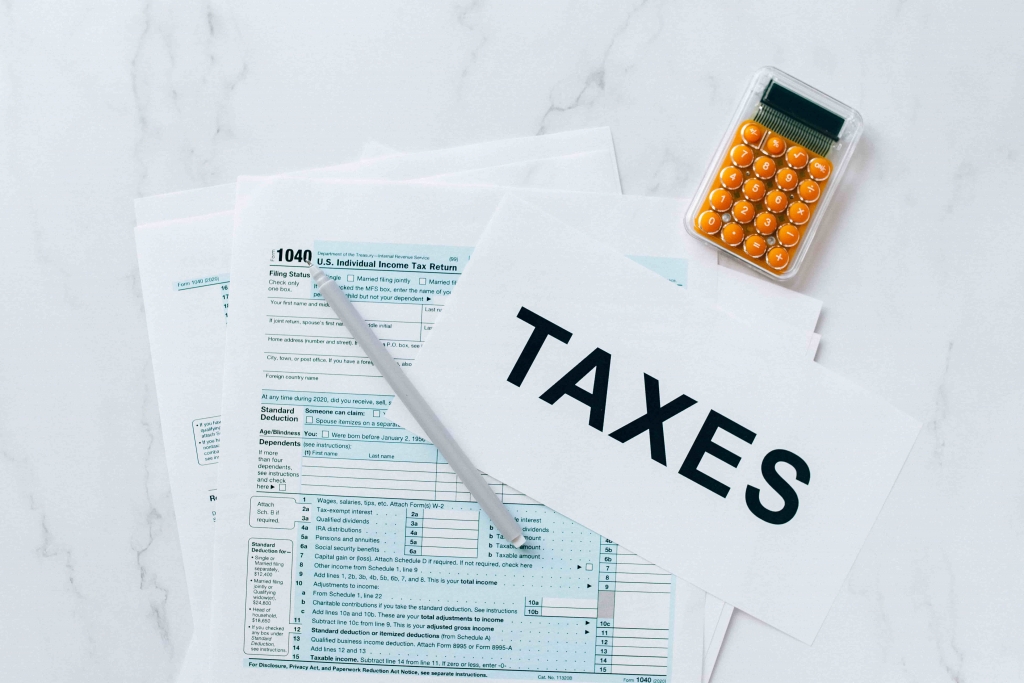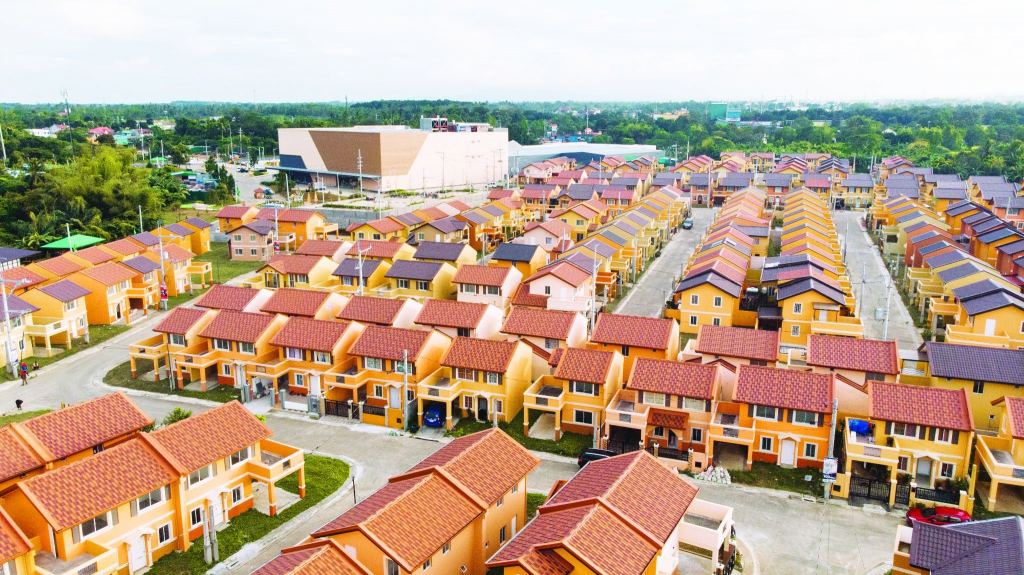Philippine Taxation | You might be thinking of selling your jewelry, coin collections, or real estate properties upon reading this. Someone might have told you that your assets are subject to taxes, and you must learn how it works. You can not run away from taxes nor escape from them. So, the only option left is to inform yourself of the complexities of taxation in the Philippines.
If you are planning to sell your house and lot property, it only calls for further mastery of taxation skills. Your primary residence or long-term house investment is subject to capital gains tax in the Philippines. It is only plausible that you will know how it can impact your total sales. Well, it exists, and you shall file for it. You can also pay income tax online.
Read more about this section as it unfolds a twisted world of taxation.

Familiarizing with Terms
Philippines Taxation | How does it work?
Talking about Philippine taxation and how it works bores almost everyone who is reading anything related to it. On the other hand, others who really want to learn more about it find it too difficult to digest and understand. Looking for articles that are easy to comprehend is too hard to find, which makes the work even more compelling and grueling. Nonetheless, this is a detailed guide on how you can grasp the tangled information of Philippine tax, capital gains tax, and capital assets. First, you must familiarize yourself with the terms repeatedly used in this topic. It will allow you to follow the discourse as it goes deeper into the discussion.
What is a Capital Gains Tax?
You’ve heard the word “Capital Gains Tax” countless times when conversing with friends or family members who are giving you advice before posting a house and lot for sale online. Well, it exists, and you shall file for it. Why? It is because capital gains taxes are taxes imposed on your profits or sales when selling any of your capital assets. It is due once you successfully sell your taxable assets and only when it is converted to cash. The gross selling price of your property or casualty or its market value needs to have a specific percentage deduction once it is sold. In terms of real estate in the Philippines, the deduction leads to 6%.

What is a Capital Assets?
Now that you know what Capital Gains Tax is, it is now the time to learn about Capital Assets. According to Section 39 of the Philippine Tax Code, capital assets are properties sold that does not fall under the following criterion:
- Real estate properties for sale that are used in ordinary businesses
- Real estate properties claimed for depreciation used in businesses
- Real estate properties that are not of primary residence but of those in business or trade
- Stocks used in trade or inventory
If whatever you sell does not fit any of the following descriptions under Section 39 of the tax code, then it is a capital asset. However, if it is one of those, it is an ordinary asset. You can learn more about it as you browse through the National Internal Revenue Code BIR or Bureau of Internal Revenue. There are sections specifically made for it such as Sec. 24 (C), Sec. 24 (D), Sec. 27 (D) (2), Sec. 27(D) (5), Sec. 28 (A) (7) (c), Sec. 28 (B) (5) (c) and Sec. 39 (A). It is legally written in the National Internal Revenue Code of 1997.
How does Capital Gains Tax Work on Real Estate?
Since you already know the terms of capital gains tax and capital assets, you shall now know how it works on real estate. So, the capital gains tax can apply to any capital asset that increases its value over time. One good example of it is your house and lot or primary residence up for sale. For instance:
You bought a house and lot unit for 3,000,000 pesos. You sold it for 3,500,000 pesos. Your profit or sales is the remaining 500,000 (the difference of 3,500,000 from 3,000,000 pesos), subject to the capital tax gain. Obviously, you do not have to pay the tax until it is sold. However, in some cases, if you bought a house and lot unit for the same price, but you spend 500,000 for bathroom and kitchen renovation (which is called capital improvement), your cost basis from 3,000,000 will be 3,500,000, and you will have no profit after selling the property. In this case, it will be subject to exemption as you do not acquire sales from selling the property.

Guide on Filing Capital Gains Tax on Real Estate Property
Now, we are in the phase of answering the frequently asked questions in terms of filling the Capital Gains Tax in the Philippines. Here are some reminders that you might need should you find the chance to sell your property:
Who Should File the Capital Gains Tax?
Though the transaction may be subject to an exemption, a seller of the real estate property is the one who should file the capital gains tax in triplicate copies. Upon selling, exchanging, or disposing of the property, it is the duty of a person selling his or her capital assets to file for it.
When to File the Capital Gains Tax?
The proper time to file the return is within thirty (30) days after the sale, exchange, or disposal of the real estate property. However, if the property is in an installment case, the taxpayer can pay the tax in installments under certain conditions, too! The taxpayer only needs to file for the return thirty (30) days after the first down payment.
Where to File the Capital Gains Tax?
The only place where you can rightfully file the return is the place or location where you sell, exchange, transfer, or dispose of your real estate property. A taxpayer shall file the return in any of the Authorized Agent Bank (AAB) of the Revenue District Office (RDO), which has jurisdiction for filing the returns. In any case that there is no Authorized Agent Bank (AAB) within the proximity, the return shall be filed in Revenue District Office with the help of a Revenue Collection Officer or Municipal Treasurer. All of these are based on 1706 BIR Tax Forms conditions.
What are the Documentary Requirements for the Sale of Real Estate Properties?
Mandatory requirements are needed for selling real estate property in the Philippines.
According to the Bureau of Internal Revenue (BIR), here are some of the basic legal documents or mandatory requirements you need to prepare:
- Taxpayer Identification Number (TIN) of Seller and Buyer;
- Original Copy of Duly Notarized Deed of Sale or Deed of Transfer;
- Certified True Copy/ies of Transfer Certificate of Title (TCT), Original Certificate of Title (OCT), or Condominium Certificate of Title (CCT);
- Certified True Copy/ies of Tax Declaration;
- Sworn Declaration of No Improvement issued by the Assessor’s Office or at least one (1) of the transferees;
- Validated Original Official Receipt (OR) / Deposit Slip for proof of payment
- For no payment return, one copy of acknowledgment receipt of return filed through eBIR forms.
- Acknowledgment receipt from the seller;
- Secretary’s Certificate for approving the sale or transfer of the real estate property indicating the name and position of the authorized signatory to the Deed of Sale.
- Original Copy of Duly Notarized Special Power of Attorney (SPA) from the transacting party/ies if the signing person is not one of the parties to the Deed of Sale.
What are the Penalties For Not Filing the Capital Gains Tax?
Everything late is not good, especially when it comes to taxes. For filing capital gains tax on real estate, anyone who will be paying late has to undergo the following penalties:
According to the Bureau of Internal Revenue (BIR), a surcharge of twenty-five percent (25%) will be imposed on the seller/s part should they violate the following conditions:
- a person fails to file any return and/or pay the considerable amount of tax on or before due dates;
- a person files an unauthorized return with a person or office other than those with whom it is required to file
- a person fails to pay the total tax or a part of the amount tax written on the return or simply the full amount of tax due with no return required filed before the due date;
- a person fails to pay the deficiency tax within the prescribed time in the Notice of Assessment.
On the second level, a surcharge of fifty percent (50%) is charged for any of the violations below:
- a person willfully neglects to file the return within the time prescribed in the rules or regulations or;
- a person knowingly made a false or fraudulent return
Who are Qualified for Capital Gains Tax Exemptions?
When it comes to selling your real estate properties, you can try to look for criteria that can exempt you from paying capital gains tax.
In the Philippines, there are valid reasons that allow real estate sellers to exempt themselves from the capital gains tax:
- A person is exempted from capital gains tax if the reason for selling their property is to buy or construct a new property. However, a person has no records of availing of the tax exemption for the last decade.
- A government entity or government-owned property that sells the real estate property or;
- A dealer in securities that are regularly engaged in buying and selling securities.
Live in a Stress-Free Community of Camella Homes
There are different taxes in the Philippines that every Filipino taxpayer should know. As a homebuyer, you must familiarize yourself with how it affects or impacts the prices of your house and lot unit. All of these are important and essential and, therefore, should make you wiser in buying or selling any real estate properties in the Philippines. Thus, look for a Camella project nationwide if you want to make a worry-free moment. It will surely make your owning experience less stressful and hassle.

You can give yourself a stress-free home purchasing transaction when you buy a house and lot unit in Camella Homes.
It is the country’s favorite home builder that produces quality yet affordable homes. It caters to distinct Filipino tastes and provides the best living experience for every family in the country. Should you wish to buy a new house and lot unit after selling your previous property, you may opt to invest in the amicable community of Camella Homes. It has world-class amenities you and your kids enjoy, such as swimming pools, basketball courts, jogging trails, open green spaces, a clubhouse, and a space shuttle. It is also near primary conveniences like shopping malls, places of worship, educational institutions, and medical centers. Most of its projects are even a few steps away from All Day, All Home Supermarket, and Vista Mall.

Homebuyers can also choose from its elegantly built house models by exploring any of Camella’s projects nationwide.
For the Camella Series, the house models available are Bella, Cara, Dana, Dani, Ella, Freya, and Greta. The immense selection of house models can give you the dream house you deserve. Examine each house’s features, payment options, rates, and prices when you inquire with the authorized agent at their official website.
For faster transactions, visit Camella’s official website. There is a detailed buyer’s guide list that will help you secure a house and lot unit, and there is also a house catalog that you can browse for available branches and house models. A 360-degree virtual tour is accessible on the home page, so make you give yourself a chance to take on Camella’s virtual experience.

Call them at their official landline or hotline at (02) 3226 3552. You can also contact Camella’s real estate agents through text or call via the certified mobile number of 0910 082 0632. There is also a list of Camella Office Directories on its main website if you want to connect to a specific admin or property manager within a particular area. Hence, if you want to learn more about the proper steps in achieving your dream house, go to www.camella.com.ph and invest with Camella now!


